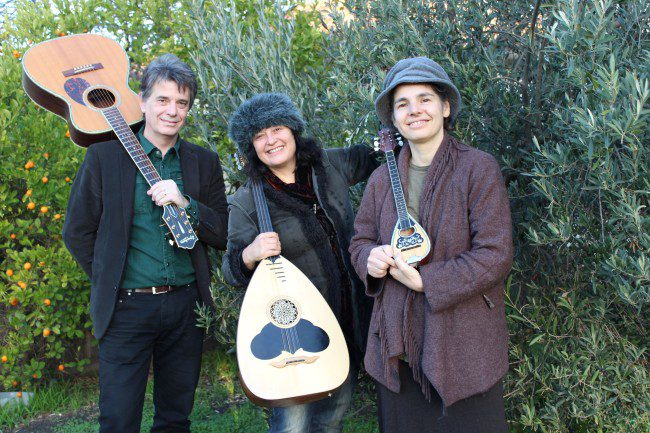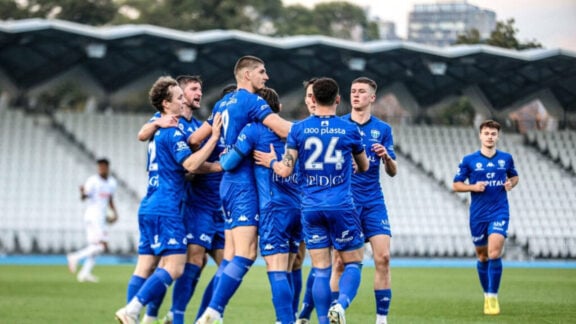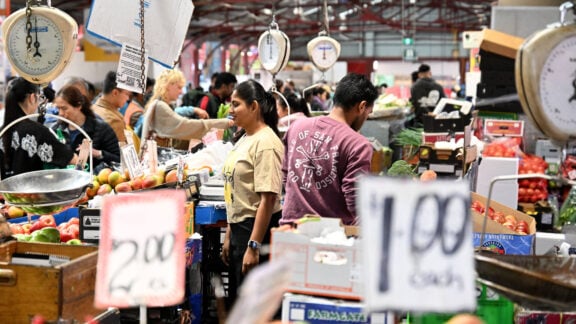After several collaborations, the haBiBis and Saray Iluminado are coming together once again to perform in a double bill at the historic Caravan Music Club this month.
Lauto, bouzouki and guitar player Irine Vela, who is a member of the haBiBis and as of a couple of weeks ago also joined Saray Iluminado, is looking forward to the night, which she says will be a chance to showcase the shared and distinct connections between Greek, Sephardic and Sevdah music and song.
“It’s two different traditions; the haBiBis really specialise in Greek tradition and Saray Iluminado lies in the Sephardic tradition, but there are commonalities and that’s what we’re exploring,” she says.
Given that a number of Sephardic Jews came to be living in the northern Greek city of Thessaloniki over the years, their influence lent itself to the musical tradition of the area and vice versa.
“So the songs were the same, the music’s the same − but the language is different,” Vela tells Neos Kosmos.
“The Sephardic largely sang in a language called Ladino and the Greeks in Greek. But what it meant was that the repertoire was the same, it was just the language that was different. So we found that we shared a lot of songs in common.”
It was this realisation that brought the two groups together, who while pursuing their own respective repertoires, have combined their efforts to breathe new life into an old tradition.
The haBiBis are known for their exquisite traditional music from Greece, Anatolia, the Balkans and the eastern Mediterranean as well as contemporary songs from the modern Greek repertoire, while Saray Iluminado, who formed in 2013, play new interpretations of Sevdah from Bosnia and Herzegovina and Jewish Sephardic music from the Balkans.
What gives each band even greater appeal is the mix of cultures within. Vela herself is of Greek and Albanian background, while vocalist Nela Trifkovic is Serbian, Jewish and Muslim, and that’s just two of seven members.
While Vela acknowledges the differences in each repertoire, she is eager to convey that this is not what the collaboration is about, but rather to show the similarities and how each overlaps with the other.

Though each genre dates back decades, and was developed oceans away from Australia, the performer says the music, which is very emotional, continues to resonate today.
“Speaking from the Greek repertoire, because I speak Greek, the themes are quite universal apart from the music itself, because the music is timeless.
“These songs, whether they’re rebetika or paradosiaka, stood the test of time, and so they have a broad and deep appeal not only to Greeks but to other people,” she says, with subject matters that transcend borders, ranging from love and betrayal, to grief and seduction.
“What is also great about both repertoires is that they are very passionate and really interesting melodically. They utilise many modes and are very rich melodies; they twist and they turn. So it’s fascinating music to play, but it’s also really beautiful to listen to because it’s not predictable.”
And it would seem others agree.
As the audience grows, so too does the number of performers, which includes younger generations who are choosing to cover not only rebetika, but Cretan and Pontian music.
“What’s really exciting and extraordinary is that third or fourth generations are going right back into the roots and rediscovering folk music instruments such as the clarino, the lyra. That didn’t happen before, it was older players that did that. When they died, as they did in the ’80s and ’90s, there weren’t many people of my generation who could play those instruments or were into that traditional music. But what’s happened is that the next generation has taken it on and is excelling at it.”
Adding to the musical resurgence is also the time in which the bands find themselves socially, as greater awareness continues to grow about cultural identity and the breaking down of borders.
“That’s what makes this project really interesting, because it’s a celebration of the Greek and Jewish connection, but also the influence of where we sat within Ottoman music,” says Vela.
“What Ottoman music really represents is that all these cultures had their music to begin with, they all just blended in under the colonialism of the Ottoman Turks. But the music itself was always there, and it’s the music of the people.”
See The haBiBis and Saray Iluminado perform on Saturday 19 November at The Caravan Music Club (95-97 Drummond Street, Oakleigh, VIC). Doors open at 8.00 pm for an 8.40 pm start. Reserved seats – $25+bf, general admission – $18+bf or $20 at the door if available. To purchase tickets, visit www.caravanmusic.com.au/gigs/the-habibis-sarah-iluminado/









